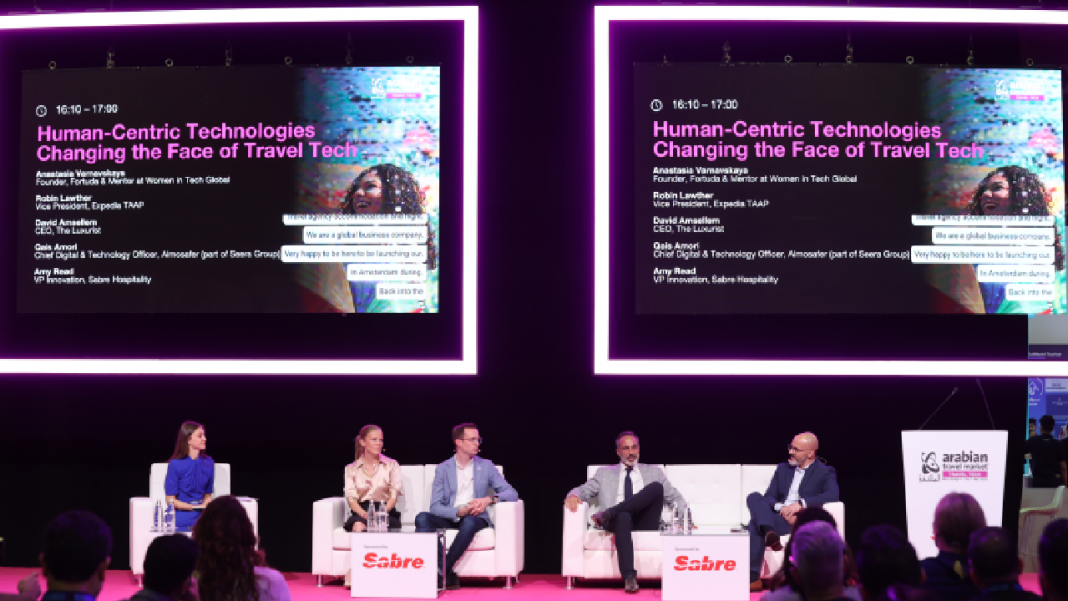Travel technology is transforming the industry globally, changing the way travelers plan, book, and experience their journeys. According to a recent report by Tourism Economics on behalf of Arabian Travel Market (ATM), 60% of travelers in the UAE trust Artificial Intelligence (AI) to plan every aspect of their trips, compared to 48% of travelers in other countries, with this figure predicted to rise as technology becomes more embedded into consumer habits.
According to the report, AI is becoming a key tool for travelers planning trips to the Middle East. Nearly six in ten have used AI for travel planning, with 21% using it before their most recent trip. As AI adoption grows, it is expected to play an increasing role in delivering personalized recommendations and booking experiences for tech-savvy travelers. The research also confirmed that travel firms are harnessing AI to enhance customer service and drive economic impact.
In line with the digital transformation within travel and tourism, ATM 2025 provided a platform for experts across the technology, hospitality and events industries to discuss the implications for human connection as AI-powered tools, personalized service platforms, and data-led design become more prevalent.
Speaking during the event, Amy Read, VP Innovation at Sabre Hospitality, said: “It is important to recognize that human connection is at the core of hospitality. When we think about innovation within hospitality, we try to find ways that amplify those key moments, rather than replace them. We want to free up staff time so that they can engage in more meaningful interactions.”
Read acknowledged that it is vital for the industry to recognize that technology has changed guests’ expectations of hospitality providers as they now seek instant gratification and swift responses. This has led to the development of innovative solutions such as SynXis Concierge AI, which uses generative AI to transform customer service for hoteliers, providing immediate, detailed, and accurate responses to specific queries, reducing the reliance on individual staff knowledge and ensuring consistent, high-quality service around the clock.
Other examples include Miral’s AI concierge, Majd Al, which is utilized at attractions such as Yas Bay Waterfront and Ferrari World Yas Island in Abu Dhabi. The service offers tailored suggestions based on individual preferences, helping visitors maximize their experience.
Fellow panellists agreed that human-centric innovation begins with understanding consumer behaviour, with organisations like Almosafer adopting a co-creation approach, developing tools based on customer pain points. Similarly, travel agent platform Expedia TAAP builds technology informed by insights from travel agents themselves, ensuring that its tools are aligned with customer needs and are usable.
Meanwhile, the rise of AI in the business events (MICE) sector is delivering significant gains in efficiency and insight. With the global meetings and events industry set to reach USD 945 billion in 2025 and projected to exceed USD 2.3 trillion by 2032, the need for scalable, intelligent tools has never been greater. Data-led personalization is now critical to driving attendee engagement and loyalty, with AI helping to automate sourcing, translate content in real time, and generate tailored event experiences.
However, speakers were united in warning against over-reliance on technology at the expense of authenticity. As AI becomes central to personalizing travel experiences and improving operational efficiency, it does not replace human roles but rather reshapes them, encouraging organizations to realign talent towards more meaningful, guest-focused interactions. Ultimately, as event planners and travel providers aim to create experiences that resonate, the consensus remains that human connection must stay central to every digital advancement.
Danielle Curtis, Exhibition Director ME, Arabian Travel Market, commented: “When it comes to travel and tourism innovations, the most effective technologies are those that amplify human interactions, improve efficiency and respond directly to customer needs. The industry has a shared commitment to responsible innovation by placing people at the centre of every technology solution.”
Reflecting the travel industry’s total convergence with technology and innovation, ATM Travel Tech was larger than ever at the 2025 edition, with an increase of over 26% in the number of products showcased. ATM 2026, which takes place from 4-7 May, will build further on this innovation focus, showcasing the latest technologies that are shaping the future of travel.


